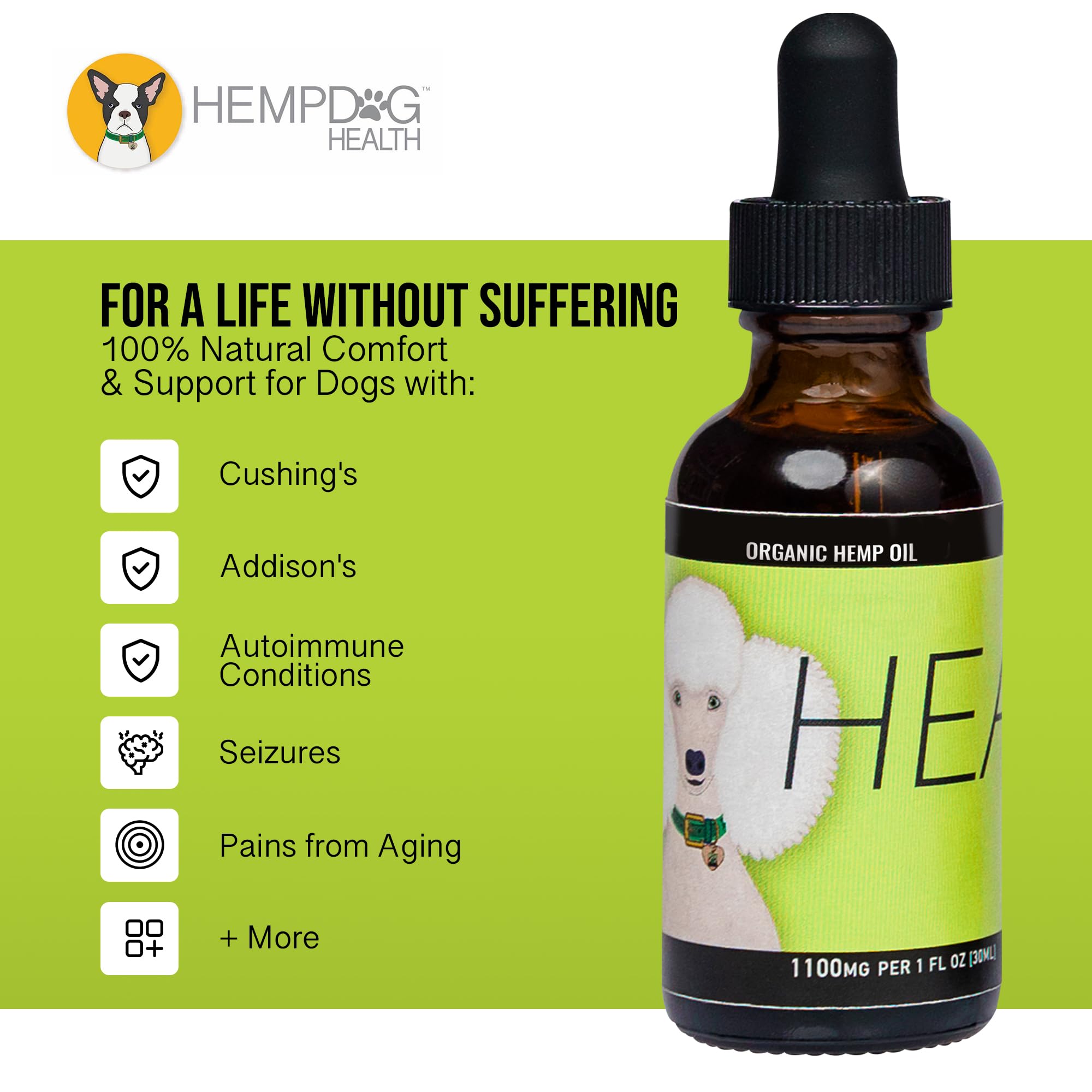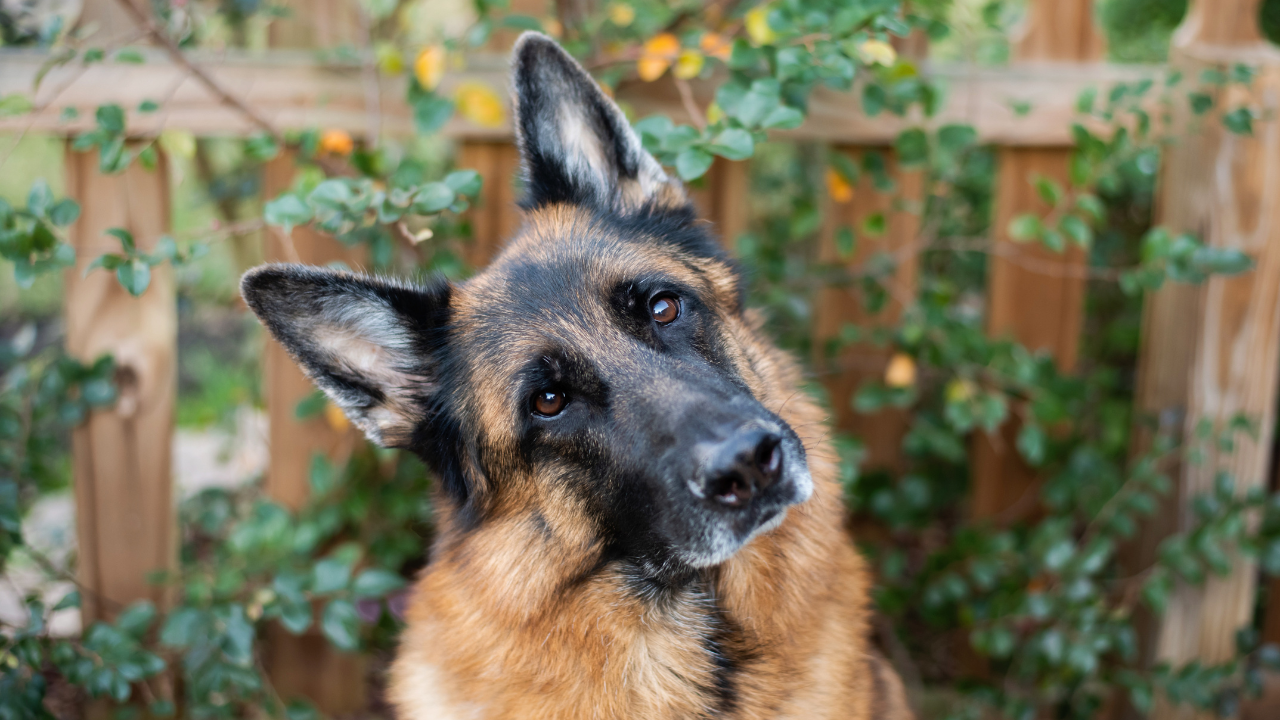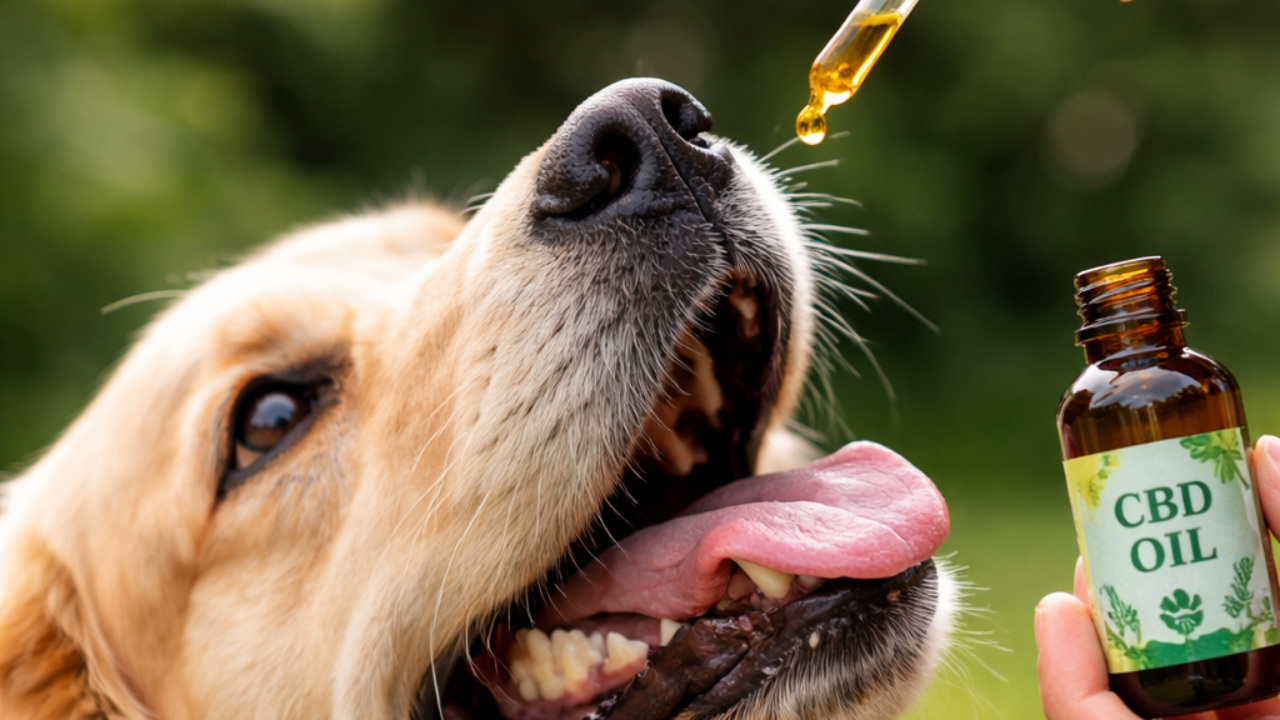Science-Backed Holistic Dog Cancer Treatments
Aug 25, 2025
When your beloved dog receives a cancer diagnosis, it feels like your world stops. You'd do anything to help them feel better and live longer. It's natural to wonder if there are other ways to support your furry family beyond traditional dog cancer treatments like surgery, chemotherapy, or radiation.
You've probably heard about holistic or alternative therapies for dogs with cancer. But with so much information online, it's hard to know what's helpful and what might even be harmful.
What Are Holistic Therapies?
Holistic therapies look at your dog as a whole being, not just the disease. These approaches often focus on supporting the body's natural healing processes and improving quality of life. Some people call them "alternative" therapies, but many vets prefer the term "complementary" because these treatments work best alongside conventional medicine rather than serving as a replacement.
Think of it like this: if conventional cancer treatment is the main course, complementary therapies are the side dishes that make the whole meal better.
Separating Myths from Facts
Myth: Natural always means safe
Fact: Just because something is labeled as natural doesn't mean it's automatically safe for your dog. Many plants and herbs can be toxic to dogs, especially when they're already dealing with cancer and taking other medications. Always check with your vet before giving your dog any supplements or herbs.
Myth: Holistic therapies can cure cancer
Fact: While some complementary therapies can help dogs feel better and may support their overall health, there's no reliable evidence that any alternative therapy can "cure cancer."
Myth: No family veterinarians know about or support holistic approaches
Fact: Many veterinarians today are trained in complementary therapies or work closely with holistic practitioners. It's important to check with your vet before believing they will immediately shut you down. You may be surprised.
Myth: If one dog improved with a holistic therapy, it will work for all dogs
Fact: Every dog and every cancer is different. What helps one dog might not help another or could even be harmful. This is why working with professionals who understand both your dog's specific situation and the therapy is so important.
Evidence-Based Complementary Approaches
Some complementary therapies have research supporting their use alongside conventional cancer treatment:
Acupuncture May Reduce Nausea
Acupuncture can help reduce nausea from chemotherapy and may help with pain management (Vickery, 2023; Yan et al., 2023). Many veterinary oncologists now recommend acupuncture as part of a complete treatment plan.
Massage for Anxiety
Massage therapy can reduce stress and anxiety, improve circulation, and provide comfort. Research in both human and veterinary medicine supports massage therapy for reducing cancer-related pain (Lee et al., 2015; Zhang et al., 2023). It's also a wonderful way for you to bond with your dog during treatment.
Dog Cancer Diet and Quality of Life
Nutritional support through high-quality diets designed for dogs with cancer can help maintain strength and energy. Research has shown that omega-3 fatty acids can improve quality of life and reduce pain in dogs, including those undergoing cancer treatment (Griffiths et al., 2024; Heinze et al., 2024; Magalhães et al., 2021).
What your dog eats matters more during cancer treatment. Cancer cells love sugar (carbohydrates), while your dog's body needs protein and healthy fats to stay strong.
Cancer-appropriate diets typically feature:
- Higher protein from quality sources like chicken, fish, or turkey
- Moderate to high healthy fats like omega-3's from fish oil
- Lower carbohydrates than regular dog food
- Easy digestibility
Options to consider:
- Working with a veterinary nutritionist for a home-cooked plan
- Adding omega-3 supplements to your dog's current food
Common feeding challenges and solutions:
- No appetite? Try warming food, adding low-sodium broth, or hand-feeding small amounts
- Nausea after chemo? Feed smaller meals more frequently, avoid feeding right before treatment
- Weight loss? Focus on calorie-dense foods and don't worry about "perfect" nutrition—getting calories in matters most
What About Full-Spectrum CBD for Dogs with Cancer?
CBD products are being studied for their potential to help with pain, nausea, and appetite in dogs with cancer. Laboratory studies have shown that CBD can reduce cancer cell proliferation in canine cancer cell lines, though more clinical research is needed (Henry et al., 2021).
Current research suggests CBD has a generally favorable safety profile in dogs when used appropriately (Corsato Alvarenga et al., 2023; Di Salvo et al., 2023). However, the research is still early, and quality varies widely between products (Ukai et al., 2023).
Considering Physical Therapy
Physical therapy and exercise appropriate for your dog's condition can help maintain muscle mass and improve quality of life during treatment (Griffiths et al., 2024).
Finding the Right Practitioners
Finding qualified professionals who understand both conventional and holistic care makes all the difference. Here's how to start:
Look for proper credentials:
- For acupuncture: veterinarians certified by the International Veterinary Acupuncture Society (IVAS) or graduates of the Chi Institute
- For holistic vets: look for CVMA (Certified Veterinary Medical Acupuncturist) or members of the American Holistic Veterinary Medical Association (AHVMA)
- Ask your oncology vet for referrals—they often know integrative practitioners in your area
Questions to ask before your first visit:
- How many cancer patients have you worked with?
- Will you communicate directly with my oncologist?
- What does a typical treatment plan look like?
- How will we measure if this is helping my dog?
What to expect: Most complementary therapy appointments last 30-60 minutes. Your first visit will include a thorough history and examination. Bring all your dog's medical records and a list of current medications and supplements.
The Real Talk About Costs
Let's be honest—cancer treatment isn't cheap, and adding complementary therapies increases expenses. Here's what to expect:
Typical costs:
- Acupuncture: $50-150 per session (usually weekly at first)
- Veterinary massage therapy: $60-100 per session
- Cancer-specific diets: $3-8 per day more than regular food
- Quality CBD products: $30-100 per month depending on your dog's size
- Physical therapy: $50-150 per session
Getting the most value: Start with one or two therapies that address your dog's biggest challenges. If your dog struggles with nausea, acupuncture might help most. If pain is the main issue, consider massage or CBD.
Insurance note: Some pet insurance policies cover acupuncture and physical therapy. Check your policy or ask your provider. Even without coverage, many integrative vets offer package deals or payment plans.
Red Flags to Watch For
Be cautious of any treatment or practitioner who:
- Promises to cure your dog's cancer
- Tells you to stop conventional treatment
- Asks for large payments upfront
- Can't explain how their treatment works
- Doesn't want to communicate with your regular veterinarian
- Claims their treatment works for "all types" of cancer
One Dog's Journey
Bailey, a 10-year-old Golden Retriever, was diagnosed with lymphoma. Her family chose chemotherapy along with weekly acupuncture and a cancer-specific diet.
"The chemo gave us more time, but the acupuncture gave us quality," Bailey's owner shares. "She barely had nausea, kept her appetite, and seemed like herself. We got 14 good months—emphasis on good—instead of watching her suffer through treatment."
Bailey's story isn't a miracle cure. It's an example of how integrative care can help dogs feel better while fighting cancer. Not every dog responds as well, but many benefit from thoughtful combinations of conventional and complementary care.
The Best of Both Worlds
The most successful approach often combines the best of conventional and complementary medicine. This is sometimes called "integrative veterinary medicine."
Here's how to make it work:
Start with your oncology veterinarian. They understand your dog's specific cancer and can guide you toward complementary therapies that won't interfere with treatment.
Be honest about everything. Tell all your dog's healthcare providers about every supplement, herb, or therapy you're considering or already using.
Keep detailed records. Track how your dog responds to different treatments, including changes in appetite, energy, pain levels, and overall mood.
Focus on quality of life. While we all want more time with our dogs, ensuring they feel good during that time is equally important.
Timing It Right
When to start complementary therapies: Ideally, begin integrative approaches early in your dog's treatment journey. Starting acupuncture before chemotherapy, for example, may help prevent nausea rather than just treating it. However, it's never too late to add supportive care.
How long before you see results:
- Acupuncture: Some dogs improve after one session; others need 3-4 treatments
- CBD: May take 1-2 weeks to see effects on pain or appetite
- Dietary changes: You might notice improved energy within 2-3 weeks
- Massage: Benefits often show immediately in terms of relaxation
Signs it's time to stop or adjust:
- Your dog seems more stressed by the therapy than helped
- No improvement after a reasonable trial period (ask your practitioner what's reasonable)
- Side effects appear like diarrhea from supplements
- Your dog's cancer progresses despite all efforts
- The cost becomes unsustainable for your family
Trust your gut. If something doesn't feel right, speak up.
Questions to Ask
Before trying any complementary therapy, ask:
- Is this safe to use with my dog's current treatments?
- What evidence supports this therapy for dogs with cancer?
- How will we know if it's helping?
- What are the possible side effects?
- How much will this cost over time?
Taking Care of You Too
Caring for a dog with cancer is emotionally and physically draining. You can't pour from an empty cup.
Resources for pet parents:
- Lap of Love (veterinary hospice service) offers grief support
- Association for Pet Loss and Bereavement has online support groups
- Many veterinary schools offer pet loss support hotlines
- Local cancer support groups often welcome pet parents
Permission to take breaks: It's okay to need time away. Ask friends or family to take over for an afternoon. Your dog benefits most when you're not running on empty.
Decision fatigue is real: You'll face countless choices about treatments, therapies, and care. Remember: there's rarely one "right" answer. The best choice is the one you can live with, that fits your budget, and that prioritizes your dog's comfort.
A Well-Rounded Approach
Complementary therapies can play a valuable role in supporting dogs with cancer, but they work best as part of a team approach that includes proven medical treatments. The goal isn't to choose between conventional and holistic care. It's to use the best of both to help your dog feel as good as possible for as long as possible.
Remember, you're not just treating a disease; you're caring for your beloved companion. The most important thing you can do is work with qualified professionals who understand both your dog's medical needs and your desire to explore all safe options.
Your dog doesn't need you to find a miracle cure. They need you to make thoughtful, informed decisions about their care while showering them with the love and attention that makes every day special. And on the hard days, when you're exhausted from vet visits, worried about costs, and heartbroken by what's ahead, remember that your presence, your touch, and your voice are healing forces no treatment can replace.
References
Corsato Alvarenga, I., Panickar, K. S., Hess, H., & McGrath, S. (2023). Scientific validation of cannabidiol for management of dog and cat diseases. Annual Review of Animal Biosciences, 11(1), 227-246. https://doi.org/10.1146/annurev-animal-081122-070236
Di Salvo, A., Conti, M. B., & della Rocca, G. (2023). Pharmacokinetics, efficacy, and safety of cannabidiol in dogs: An update of current knowledge. Frontiers in Veterinary Science, 10, 1204526. https://doi.org/10.3389/fvets.2023.1204526
Griffiths, J., Carlisle, C., Metzger, B. T., Tintle, N. L., Jackson, K. H., & Harris, W. S. (2024). The effects of omega-3 supplementation on the omega-3 index and quality of life and pain scores in dogs. Animals, 14(21), 3108. https://doi.org/10.3390/ani14213108
Heinze, C. R., Burgess, K. E., Barber, L. G., Rassnick, K. M., Post, G. S., Segaloff, R., & Bayle, J. (2024). Effects of a high‐protein, increased‐fibre, dry diet supplemented with omega‐3 fatty acids on quality of life in dogs undergoing chemotherapy. Veterinary and Comparative Oncology, 22(1), 2-11. https://doi.org/10.1111/vco.12940
Henry, J. G., Shoemaker, G., Prieto, J. M., Hannon, M. B., & Wakshlag, J. J. (2021). The effect of cannabidiol on canine neoplastic cell proliferation and mitogen‐activated protein kinase activation during autophagy and apoptosis. Veterinary and Comparative Oncology, 19(2), 253-265. https://doi.org/10.1111/vco.12669
Lee, S. H., Kim, J. Y., Yeo, S., Kim, S. H., & Lim, S. (2015). Meta-analysis of massage therapy on cancer pain. Integrative Cancer Therapies, 14(4), 297-304. https://doi.org/10.1177/1534735415572885
Magalhães, T. R., Lourenço, A. L., Gregório, H., & Queiroga, F. L. (2021). Therapeutic effect of EPA/DHA supplementation in neoplastic and non-neoplastic companion animal diseases: A systematic review. In Vivo, 35(3), 1419-1436. https://doi.org/10.21873/invivo.12394
Ukai, M., McGrath, S., & Wakshlag, J. (2023). The clinical use of cannabidiol and cannabidiolic acid-rich hemp in veterinary medicine and lessons from human medicine. Journal of the American Veterinary Medical Association, 261(5), 623-631. https://doi.org/10.2460/javma.23.02.0064
Vickery, K. (2023). Acupuncture in the veterinary oncology patient. VETgirl Veterinary Continuing Education. Retrieved from https://vetgirlontherun.com/acupuncture-in-the-veterinary-oncology-patient-vetgirl-veterinary-continuing-education/
Yan, X., Liu, S., Xu, J., Sun, Y., Zhao, X., & Li, J. (2023). Acupuncture for the prevention of chemotherapy‐induced nausea and vomiting in cancer patients: A systematic review and meta‐analysis. Cancer Medicine, 12(11), 12420-12433. https://doi.org/10.1002/cam4.5962
Zhang, Y., Wang, S., Ma, X., Yuan, Y., Cheng, H., Lin, L., & Tian, L. (2023). Massage therapy can effectively relieve cancer pain: A meta-analysis. Medicine, 102(27), e33939. https://doi.org/10.1097/MD.0000000000033939
Become a Dog Cancer Coach.
Transform your passion for dogs into a meaningful, heart-led career with our Holistic Dog Cancer Coach Certification—an in-depth, flexible online program designed for compassionate caregivers ready to make a difference.
Stay connected with news and updates!
Join our mailing list to receive the latest news and updates from our team.
Don't worry, your information will not be shared.
We hate SPAM. We will never sell your information, for any reason.






